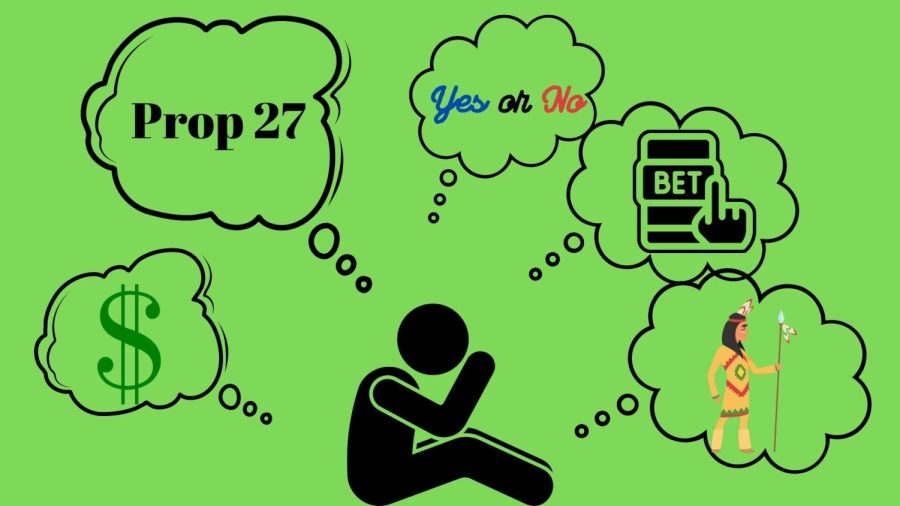According to the California Legislative Analyst’s Office, Proposition 27 (Prop 27) will allow Californian tribes and sports betting companies to offer online sports wagering in California.
However, those profits from gambling will come at a cost, as tribes and betting companies will have to pay 10% of the profits to the state. In addition, a tribe has to pay an additional $10 million for a five-year license, and a betting company has to pay $100 million for a license.
Payments made to the state through Prop 27 will address the homelessness problem in California, consisting of 85% of the funds. The other 15% will fund tribes that aren’t in the online betting industry.
Many Californians have already heard of Prop 27, as advertisements have reached a broad audience. According to Politico, $160 million has been spent in advertising for Prop 27, and $150 million has been spent advertising against it.
“I see the advertisements, especially next to people’s houses. I [also] see them on television and in news sources such as the Public Broadcasting Station (PBS),” said Daniel Levy, a freshman at Carlmont High School.
According to Politico, online betting companies such as BetMGM, FanDuel, and DraftKings have funded the majority of advertisements advocating for Proposition 27.
On the other hand, the San Manuel Band of Mission Indians, the Rincon Band of Luiseño Indians, and the Yocha Dehe Wintun Nation have funded the bulk of advertising against Proposition 27.
Native American tribes in California have been marketing tactics for both sides of Prop 27. For example, in an advertisement for Prop 27, Jose ‘Moke’ Simon of the Middletown Rancheria of Pomo Indians in California explains how his tribe has “whittled down to a small community,” and how Prop 27 will help them.
On the contrary, an advertisement against Proposition 27 explains how over 50 California tribes are against Proposition 27. Only three tribes support it, and therefore people shouldn’t vote for it.
“I believe the involvement of native tribes is neither a positive or negative, but somewhere in between. The advertisement’s use of native tribes seems to lean towards pushing for a certain bias,” said Aidan Yang, a junior at Carlmont High School.
Instead of supporting Proposition 27, many politicians opt to support Proposition 26 (Prop 26). According to the California Legislative Analyst’s Office, Prop 26 will allow in-person sports betting at racetracks and tribal casinos.
“Both situations seem to be at least slightly beneficial, as the passing of it could lead to increased revenue, and its failure to pass would allow a lot of their continued monopoly on the sports betting in casinos,” Yang said.
Many people, including Jared Gong, a high school student studying at Cañada College, notices the bias in Proposition 27 advertisements.
“There are always biases to these types of advertisements. Since advertisements aren’t free, there’s always going to be a goal for them and you’ll know their view as well as who benefits and loses. Not all biases are necessarily bad, but they shine a different light through it,” Gong said. “After researching Prop 27, I learned more details, and it’s far more interesting than the ads lead you to believe.”
According to a Public Policy Institute of California survey, despite $160 million being spent on advertisements supporting Prop 27, most Californians don’t support it.
In response, many television ads supporting Prop 27 have been rolled back, according to ABC7 News.
“If these outside companies get into the market, they can make lots of money taking money out of circulation in our economy, making that less than $500 million gain disappear. California already has a capital flight problem, and this may potentially contribute,” Gong said. “There are many pros and cons to it and it’s hard to see how things will pan out though, all things considered.”













